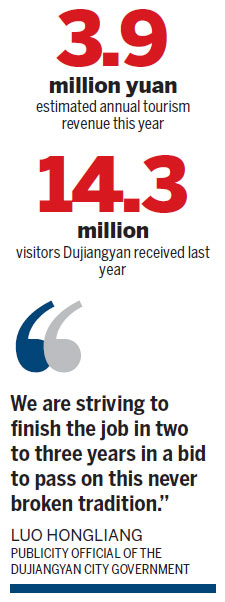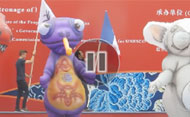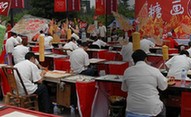Water-releasing festival
Over the past thousand years, what was once a simple ceremony has evolved into a whole set of rituals to remember Li Bing, honor man's conquest of nature and pray for a bountiful harvest.

Locals in traditional costume celebrate the festival.
In recent years, this local ceremony has also grasped the world's attention. The Dujiangyan government invited 62 diplomatic envoys from 33 countries to the opening ceremony of the festival this year.
In a speech, Munshi Faiz Ahmad, Bangladeshi ambassador to China, said the weir is a great water-control wonder worthy of the highest praise.
The festival is expected to attract more than 70,000 visitors this year and generate a revenue of 3.9 million yuan ($0.62 million), said a city leader.
As part of a strategy to better conserve this tradition, the city in 2012 plans to propose that it be included on the UNESCO's Representative List of the Intangible Cultural Heritage of Humanity, said Luo Hongliang, a publicity official of the Dujiangyan city government.
"Now the documentation has been filed to the Ministry of Culture, and we are striving to finish the job in two to three years in a bid to pass on this unbroken tradition," Luo added, noting the festival was already included in China's list of intangible cultural heritage as early as 2006.
The city is keenly aware of the move's potential benefit now that it is already home to world cultural and natural sites - the Dujiang Weir and the Qingcheng Mountain.
Offering unique attractions on its 36 peaks, the Qingcheng Mountain has long been recognized as the birthplace of Taoism, a major religion in ancient China.
UNESCO's expected addition of the festival will enable the local government to pool more resources for conservation and will give the city the rare distinction of being home to three types of world heritage.
Tourism boost
The increasing popularity of this festival will boost local tourism to a new high, officials say. The official statistics show that Dujiangyan received 14.3 million visitors in 2011, a 23 percent increase year-on-year, and they brought 6.3 billion yuan to the local economy.








